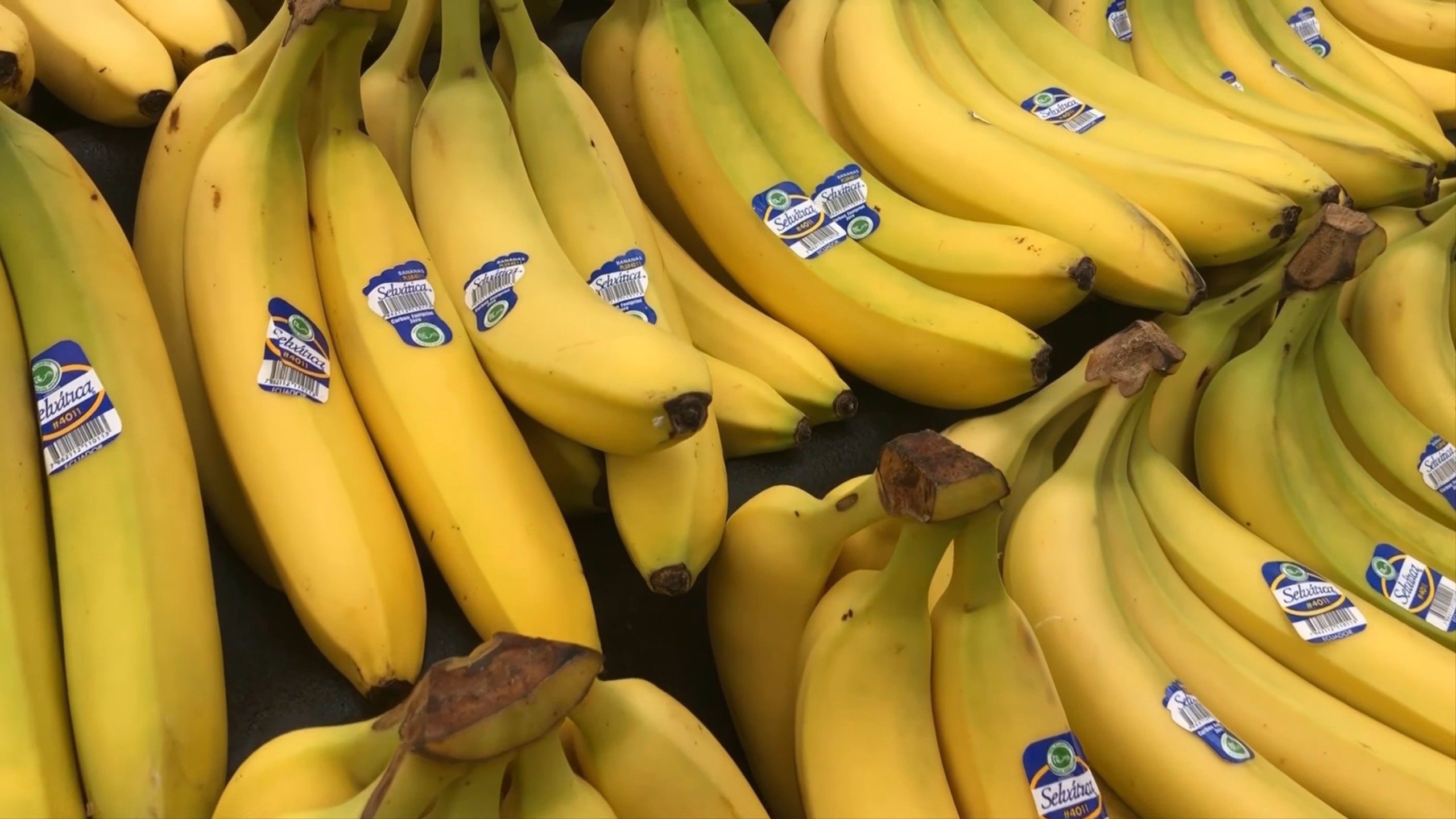Morning sickness, a common symptom during pregnancy, can strike at any time of the day, typically beginning between the first 4 to 6 weeks. Although it’s often associated with the morning, it can occur at any time.
This discomfort is believed to result from several factors, including hormonal changes, increased sensitivity to odors, excess saliva production, stress, and fatigue. Nearly three out of four pregnant women experience morning sickness, making it a prevalent issue.
Despite its challenges, it’s important to remember that morning sickness is usually temporary, often improving by the 14th week of pregnancy.
In this article, we will discuss:
- Recommended food is not only beneficial for easing nausea but also provides significant nutritional value.
- The importance of pregnant women listening to their bodies and choosing foods that suit their personal dietary preferences and nutritional needs.
- Key considerations for each food item are provided, such as their ease of digestion, suitability for different types of morning sickness, and various forms in which they can be consumed.
Now, we want to discuss the top ten foods that can help with battling nausea during pregnancy.
1. Salted Crackers
Morning sickness, a common symptom of pregnancy, can often lead to discomfort and nausea. Salted crackers are a traditional and effective remedy for this. Their bland taste and high starch content helps in absorbing gastric acids and easing stomach upset. They are especially useful for pregnant women experiencing nausea upon waking up.
Salted crackers are primarily a source of carbohydrates, providing quick energy without being heavy on the stomach. They also contain a small amount of sodium, which can help replenish electrolytes lost due to vomiting associated with morning sickness.
Key considerations:
- Ideal for instant relief from morning sickness and nausea during pregnancy.
- Easy to digest, causing minimal stomach upset.
- Their blandness suits pregnancy-related aversions and hyperemesis gravidarum.
2. Lemon
Lemons are renowned for their ability to neutralize stomach acids, making them an excellent choice for combating pregnancy nausea.
The citrus fruit contains compounds that react with stomach acids to form bicarbonate, which can help soothe the stomach and provide morning sickness relief. Lemons are a good source of vitamin C, essential for immune system function, and also provide small amounts of potassium, which is vital for overall health during pregnancy.
Key considerations:
- Can be consumed in various forms, such as lemon water, candies, or even in dishes.
- The refreshing aroma of lemon can also help with nausea during pregnancy.
- Particularly beneficial for those suffering from hyperemesis gravidarum, as it provides a gentle, natural remedy.
3. Ginger
Ginger, widely used in traditional medicine, is an effective remedy for morning sickness and nausea during pregnancy. Its natural compounds have properties that can soothe an upset stomach and provide relief from discomfort.
Ginger is rich in gingerol, a compound known for its anti-inflammatory and antioxidant properties. It also contains trace amounts of vitamins and minerals like magnesium and vitamin C.
Key considerations:
- Can be consumed in various forms, including ginger tea, candies, or even raw.
- Known for its effectiveness in treating hyperemesis gravidarum.
- Its warming effect helps in alleviating pregnancy-related aversions.
4. Cold Food
Cold foods can be a great alternative for pregnant women who find hot foods or their aromas triggering their gag reflex. Foods like ice cream, yogurt, or cold fruits can provide relief from morning sickness without the strong smells that often accompany hot meals.
The nutritional value varies based on the type of cold food chosen. Fruits, for instance, are rich in vitamins and fiber, while dairy products provide calcium and protein.
Key considerations:
- The lack of strong aromas helps manage nausea during pregnancy.
- Offers a variety of choices to cater to different pregnancy-related aversions.
- Especially helpful in cases of morning sickness relief and in managing hyperemesis gravidarum symptoms.
5. Vitamin B6-Rich Foods
Vitamin B6 plays a crucial role in alleviating morning sickness. Foods rich in this vitamin can significantly reduce the intensity of nausea during pregnancy.
Sources of Vitamin B6 include poultry, fish, potatoes, and certain vegetables, providing a balanced mix of proteins, carbohydrates, and other essential nutrients.
Key considerations:
- An essential component in many anti-nausea medications used for morning sickness relief.
- Helps in managing more severe forms of pregnancy nausea, such as hyperemesis gravidarum.
- Aids in overall nutritional balance, are crucial for both the mother and the developing fetus.
6. High-Protein Foods
High-protein foods are essential in reducing the effects of nausea during pregnancy. Proteins help in stabilizing blood sugar levels, which can fluctuate during pregnancy and contribute to feelings of nausea.
Foods like fish, eggs, chicken, and beef are not only high in protein but also provide essential amino acids, iron, and other nutrients necessary for the health of the mother and baby.
Key considerations:
- Helps in sustaining energy levels and provides morning sickness relief.
- Beneficial in managing symptoms of hyperemesis gravidarum.
- A variety of options are available to cater to different tastes and dietary restrictions.
7. Bananas
Bananas are an excellent food for combating morning sickness due to their high vitamin B6 content. They are easy on the stomach and can help in managing nausea during pregnancy. Bananas are not only rich in Vitamin B6 but also provide potassium, fiber, and a moderate amount of carbohydrates.
Key considerations:
- The smooth texture and bland taste of bananas suit those with pregnancy-related aversions.
- Can be eaten alone or added to cereals or smoothies for added nutrition.
- Effective in providing relief from mild to moderate morning sickness and even in cases of hyperemesis gravidarum.
8. Pretzels and Chips
Pretzels and chips, due to their blandness and lack of acidity, can be surprisingly effective in soothing an upset stomach during pregnancy. They are easy to digest and can provide quick relief from nausea. These snacks are primary sources of carbohydrates. Some varieties may also contain small amounts of protein and fiber.
Key considerations:
- A quick and easy snack for immediate relief from morning sickness.
- Suitable for managing nausea during pregnancy, especially when other foods seem unappealing.
- A practical option for those dealing with hyperemesis gravidarum, as they are easy to keep down.
9. Toast
Toast is an excellent option for pregnant women experiencing morning sickness. Its bland flavor and starch content help absorb excess stomach acid, providing relief from nausea. Toast, primarily made from bread, is a good source of carbohydrates. Whole grain breads also provide fiber and essential nutrients.
Key considerations:
- Starch in toast helps in absorbing stomach acids.
- The blandness of toast makes it suitable for those with pregnancy-related aversions.
- Effective in providing relief from morning sickness and hyperemesis gravidarum.
10. Cereal
Cereal is a safe and comforting option for those suffering from morning sickness. It’s easy to digest and can be a good source of nutrition, especially when other foods are hard to stomach. Cereals are typically rich in carbohydrates and may also be fortified with vitamins and minerals. Whole grain varieties provide additional fiber.
Key considerations:
- A versatile option, suitable for various dietary needs and preferences.
- Can be consumed dry or with a non-dairy alternative to avoid potential nausea from milk.
- Helps in managing both mild morning sickness and more severe cases like hyperemesis gravidarum.
Most women crave sweets when they’re pregnant, but cereal is a healthy substitute for sweets.
FAQs
Does eating at night help with morning sickness?
Eating a small, bland snack before bed can help with morning sickness for some women. It keeps the stomach from becoming empty, which can sometimes worsen nausea. Foods like crackers or a piece of toast are often recommended. Of course, a lot will depend on the weeks as well.
How to stop nausea and vomiting during pregnancy naturally?
To naturally alleviate nausea and vomiting during pregnancy, try eating small, frequent meals, staying hydrated, avoiding spicy or fatty foods, and incorporating ginger or lemon into your diet. Resting and avoiding strong smells can also help.
Is it normal to be nauseous all day when pregnant?
Yes, it’s normal for some women to experience nausea throughout the day during pregnancy, a condition known as ‘morning sickness’, which can occur at any time of day. However, if the nausea is severe or affects your ability to eat and drink, consult a healthcare provider.
The Bottom Line
Managing morning sickness during pregnancy can be a challenging yet vital aspect of ensuring both the health and comfort of expecting mothers.
Each option we’ve provided you with brings its unique properties to the table, from the soothing effects of ginger and lemon to the stomach-settling capabilities of bland snacks like toast and crackers.
Pregnant women need to listen to their bodies and choose foods that not only alleviate morning sickness but also align with their personal dietary preferences and nutritional needs.























